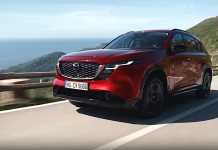Giant American chipmaker, Intel Corp. will acquire Mobileye NV for about $15 billion, paying one of the highest takeover premiums this century.
The U.S. chipmaker will pay $63.54 per share in cash for Jerusalem-based Mobileye, which makes chips for cameras and driver-assistance features. The offer, the largest ever for an Israeli company, is a 34 percent premium to Mobileye’s closing price on Friday.
The shares jumped by 29 percent to $61.10 at 12:45 p.m. in New York. Intel stock dipped 1.8 percent to $35.28.
The deal is the third most expensive acquisition in the technology industry this century, based on transactions over $5 billion and Mobileye’s trailing 12 month earnings, before interest, tax, depreciation and amortization.
The deal gives Mobileye an enterprise value of about 29.5 times this year’s projected sales, according to Amit Daryanani, an analyst at RBC Capital Markets.
That’s more than 10 times the average of companies in the U.S. benchmark Standard & Poor’s 500 Index, according to data compiled by Bloomberg.
Intel is trying to accelerate a push into what many chip companies view as the next big opportunity: self-driving cars and the data they generate.
With Mobileye, Intel gains the ability to offer automakers a larger package of components they will need as vehicles become more autonomous.
The Santa Clara, California-based company estimates the market for vehicle systems, data and services will be worth as much as $70 billion by 2030.
Intel will combine its existing autonomous vehicle technology unit with Mobileye and the new group will be run in Israel by Shashua, the companies said in a statement.
While Intel’s chips are dominant in personal computers and data centers, the world’s largest semiconductor maker has struggled to spread the use of its products to other areas where semiconductors based on ARM Holdings Plc. designs have prevailed.
Under Chief Executive Officer Brian Krzanich, Intel has sought to break into everything from drones to cash registers. That hasn’t fired up Intel’s overall sales growth yet, leaving the company reliant on PCs and servers for its profit.












